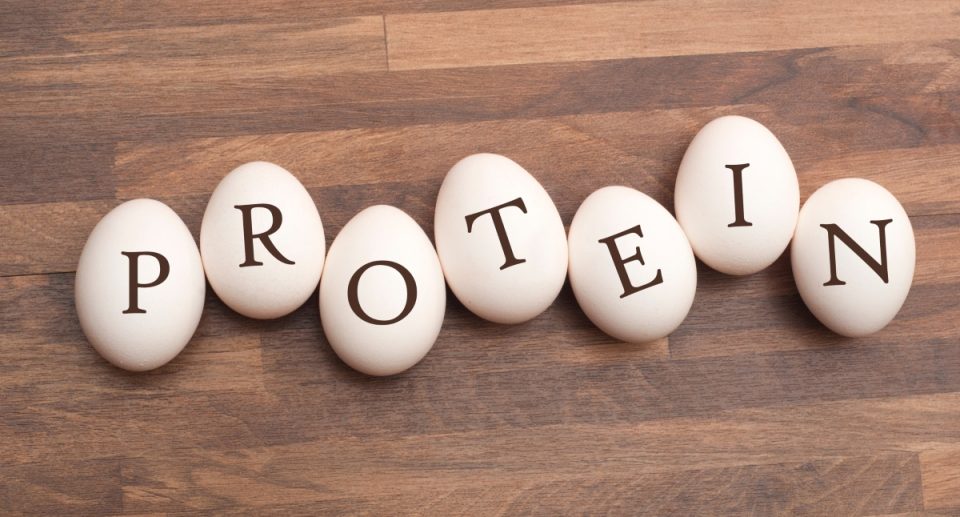Think You’re Getting Enough Protein? You May Want to Think Again!

As we age, our bodies undergo numerous changes that affect our health and well-being. One of the most important nutrients that often gets overlooked is protein. While many associate protein with bodybuilders and athletes, it’s a crucial component of a healthy diet for people of all ages—especially seniors.
But why is protein so important as we get older? And how do you know if you’re getting enough? In this post, we’ll explore the benefits of protein for seniors, signs you might not be getting enough, and how to ensure you meet your body’s needs.
Why Protein Matters for Seniors
Protein is a building block for every cell in your body. It plays a vital role in repairing tissues, building muscle, supporting immune function, and maintaining skin, hair, and nails. As we age, our bodies naturally lose muscle mass—a condition known as sarcopenia. This muscle loss can lead to weakness, decreased mobility, and a higher risk of falls and fractures.
For seniors, getting enough protein can help:
- Maintain Muscle Mass: Adequate protein intake helps prevent muscle loss, keeping you strong and active. This is crucial for maintaining independence and preventing injuries.
- Support Bone Health: Protein helps maintain bone density, which can reduce the risk of osteoporosis and fractures.
- Boost Immune Function: Protein produces antibodies and immune cells that protect against infections and illnesses.
- Aid in Recovery: Protein is essential for healing and tissue repair after surgery or illness.
How Much Protein Do You Really Need?

The recommended dietary allowance (RDA) for protein is about 0.8 grams per kilogram of body weight. However, many experts believe seniors need more—around 1.2 to 2.0 grams per kilogram—to maintain muscle mass and overall health. For example, a 150-pound (68-kilogram) person would need approximately 82 to 136 grams of protein daily.
It’s also important to spread your protein intake throughout the day. Research suggests that consuming protein evenly across meals (breakfast, lunch, and dinner) can help maximize muscle protein synthesis, which is the process your body uses to build muscle.
Signs You Might Not Be Getting Enough Protein

Many seniors don’t realize they’re not getting enough protein until they start experiencing symptoms. Here are some signs to watch out for:
- Loss of Muscle Mass: If you’re noticing a decrease in strength or muscle size, it could be due to inadequate protein intake.
- Frequent Infections: Protein is vital for a healthy immune system, so frequent colds or infections could indicate a deficiency.
- Slow Healing: Cuts, bruises, or surgical wounds that take longer to heal may signal you need more protein.
- Hair, Skin, and Nail Changes: Brittle nails, thinning hair, and dry or flaky skin can also be symptoms of low protein intake.
- Fatigue and Weakness: Feeling unusually tired or weak could be another sign your body isn’t getting the protein it needs.
How to Increase Your Protein Intake

If you think you might not get enough protein, there are plenty of ways to incorporate more into your diet. Here are some tips:
- Include Protein at Every Meal: Make sure each meal includes a source of protein. Good options include eggs, lean meats, fish, dairy products, beans, lentils, and tofu.
- Snack on Protein-Rich Foods: Choose snacks that provide protein, such as Greek yogurt, nuts, cheese, or hummus with vegetables.
- Choose Quality Sources: Focus on high-quality proteins that provide your body’s essential amino acids. Animal proteins, such as meat, poultry, fish, eggs, and dairy, are complete proteins. Some plant-based proteins, like quinoa and soy, are also complete.
- Consider Protein Supplements: If you find it challenging to get enough protein from food alone, protein supplements like whey or plant-based protein powders can be a convenient option. However, it’s always best to consult your doctor or a dietitian before starting any new supplement.
- Try Protein-Rich Breakfasts: Start your day with a protein-packed breakfast. Options like scrambled eggs, a smoothie with Greek yogurt, or oatmeal topped with nuts and seeds can boost protein.
- Stay Hydrated: Adequate hydration is essential for protein metabolism. Drink enough water throughout the day, especially when increasing your protein intake.
Special Considerations for Seniors

Our bodies may not process protein as efficiently as they once did as we age. Factors like dental issues, digestive changes, and decreased appetite can also make it challenging to consume enough protein. Here are some tips to help overcome these barriers:
- Soft Protein Sources: If chewing is difficult, try softer protein sources like scrambled eggs, cottage cheese, or well-cooked beans.
- Digestive Enzymes: Some seniors benefit from digestive enzyme supplements that help break down protein. Always consult with your healthcare provider before starting any new supplements.
- Flavor Enhancers: Adding herbs, spices, or a splash of lemon juice can make protein-rich foods more palatable if you’re experiencing changes in taste or appetite.
- Smaller, Frequent Meals: If a big meal feels overwhelming, try eating smaller, more frequent meals and snacks that include protein.
Conclusion

Getting enough protein is crucial for maintaining your health and independence as you age. By being mindful of your protein intake and making simple changes to your diet, you can support muscle mass, bone health, and overall well-being.
If you’re unsure whether you’re getting enough protein or have specific dietary concerns, don’t hesitate to contact a healthcare professional or a registered dietitian. They can help you create a nutrition plan that meets your needs and ensures you get the right amount of protein to stay healthy and strong.
Remember, it’s never too late to make changes that can positively impact your health. So take charge of your nutrition today and enjoy a healthier, more vibrant tomorrow!





